#Diplomacy
Text
“President Joe Biden ticked through several things that he needed to see Israeli Prime Minister Benjamin Netanyahu do immediately: open up the Erez crossing into northern Gaza and the port of Ashdod in southern Israel for humanitarian aid; significantly ramp up the supplies getting in through Kerem Shalom.
A person familiar with the Thursday call paraphrased Netanyahu as responding: “Joe, we’re gonna do it.”
But Biden wasn’t finished. The prime minister must announce the moves that evening, the president insisted.
By Thursday night, the Israeli security cabinet had approved those three measures to increase humanitarian aid entering the besieged enclave.”
#Netanyahu is a war criminal#Israel Gaza#Netanyahu is a Trump sycophant#unholy alliance of Isreali conservatives and Republican evangelicals#republicans hate Muslims#republicans wan’t to forcibly relocate Palestinians#Netanyahu is influencing our election in favor of Trump#republican assholes#foreign affairs#foreign policy#diplomacy#Netanyahu can’t survive without Hamas#fuck netanyahu#fuck Hamas
248 notes
·
View notes
Text
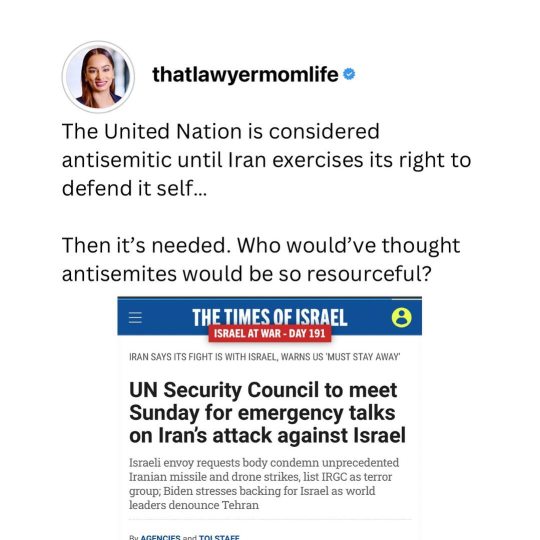

#israel#iran#united nations#world war iii#geopolitics#middle east#conflict#diplomacy#international relations#embassy attack#fuck israel
198 notes
·
View notes
Text
I was president of the USA... I'm not even American and now nothing about diplomacy. I did exile Elon Musk though. So a win is a win.
#dream#potus#president#politics#usa#president of the united states of america#diplomacy#exile#elon musk
1K notes
·
View notes
Text
Much of the public discussion of Ukraine reveals a tendency to patronize that country and others that escaped Russian rule. As Toomas Ilves, a former president of Estonia, acidly observed, “When I was at university in the mid-1970s, no one referred to Germany as ‘the former Third Reich.’ And yet today, more than 30 years after the fall of the Berlin Wall, we keep on being referred to as ‘former Soviet bloc countries.’” Tropes about Ukrainian corruption abound, not without reason—but one may also legitimately ask why so many members of Congress enter the House or Senate with modest means and leave as multimillionaires, or why the children of U.S. presidents make fortunes off foreign countries, or, for that matter, why building in New York City is so infernally expensive.
The latest, richest example of Western condescension came in a report by German military intelligence that complains that although the Ukrainians are good students in their training courses, they are not following Western doctrine and, worse, are promoting officers on the basis of combat experience rather than theoretical knowledge. Similar, if less cutting, views have leaked out of the Pentagon.
Criticism by the German military of any country’s combat performance may be taken with a grain of salt. After all, the Bundeswehr has not seen serious combat in nearly eight decades. In Afghanistan, Germany was notorious for having considerably fewer than 10 percent of its thousands of in-country troops outside the wire of its forward operating bases at any time. One might further observe that when, long ago, the German army did fight wars, it, too, tended to promote experienced and successful combat leaders, as wartime armies usually do.
American complaints about the pace of Ukraine’s counteroffensive and its failure to achieve rapid breakthroughs are similarly misplaced. The Ukrainians indeed received a diverse array of tanks and armored vehicles, but they have far less mine-clearing equipment than they need. They tried doing it our way—attempting to pierce dense Russian defenses and break out into open territory—and paid a price. After 10 days they decided to take a different approach, more careful and incremental, and better suited to their own capabilities (particularly their precision long-range weapons) and the challenge they faced. That is, by historical standards, fast adaptation. By contrast, the United States Army took a good four years to develop an operational approach to counterinsurgency in Iraq that yielded success in defeating the remnants of the Baathist regime and al-Qaeda-oriented terrorists.
A besetting sin of big militaries, particularly America’s, is to think that their way is either the best way or the only way. As a result of this assumption, the United States builds inferior, mirror-image militaries in smaller allies facing insurgency or external threat. These forces tend to fail because they are unsuited to their environment or simply lack the resources that the U.S. military possesses in plenty. The Vietnamese and, later, the Afghan armies are good examples of this tendency—and Washington’s postwar bad-mouthing of its slaughtered clients, rather than critical self-examination of what it set them up for, is reprehensible.
The Ukrainians are now fighting a slow, patient war in which they are dismantling Russian artillery, ammunition depots, and command posts without weapons such as American ATACMS and German Taurus missiles that would make this sensible approach faster and more effective. They know far more about fighting Russians than anyone in any Western military knows, and they are experiencing a combat environment that no Western military has encountered since World War II. Modesty, never an American strong suit, is in order.
— Western Diplomats Need to Stop Whining About Ukraine
#eliot a. cohen#current events#politics#ukrainian politics#american politics#warfare#strategy#tactics#diplomacy#russo-ukrainian war#2022 russian invasion of ukraine#war in afghanistan#vietnam war#ukraine#usa#toomas hendrik ilves
477 notes
·
View notes
Text
I am / dust or nothing.
— Cynthia Dewi Oka, from "Diplomacy," A Tinderbox in Three Acts
480 notes
·
View notes
Text
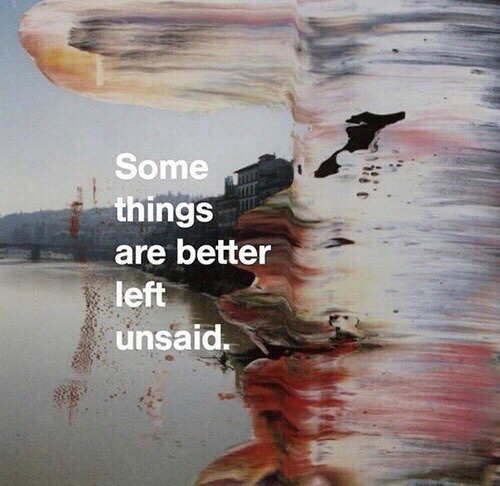
#wisdom#discretion#tact#diplomacy#kindness#compassion#empathy#understanding#forgiveness#letting go#moving on#self-control#self-awareness#emotional intelligence#conflict resolution#communication#relationships#boundaries#art#photography#spilled thoughts
310 notes
·
View notes
Text
Fantasy Worldbuilding Questions (Policy and Diplomacy)
Policy and Diplomacy Worldbuilding Questions:
What kinds of political systems exist in this world?
What unique laws or political customs shape public and private life in this world?
Who are the primary figures who influence (or manipulate) public opinion?
Who are behind-the-scenes figures in politics who have influence the average Joe might not know about?
Where are the centers of power or law (and why are they located here)?
Where do key political negotiations, summits, meetings take place?
When did the current political dispensation take power?
When will leadership change (if ever) in this world, and why?
Why do alliances form or sever in this world?
Why do people in this world support (or rebel against) its political structures?
❯ ❯ ❯ Read other writing masterposts in this series: Worldbuilding Questions for Deeper Settings
#worldbuilding#writeblr#writing tips#writing advice#fiction writing#novel writing#writing#diplomacy#political systems#unique laws#fictional diplomacy#key political negotiations#fwq
170 notes
·
View notes
Text




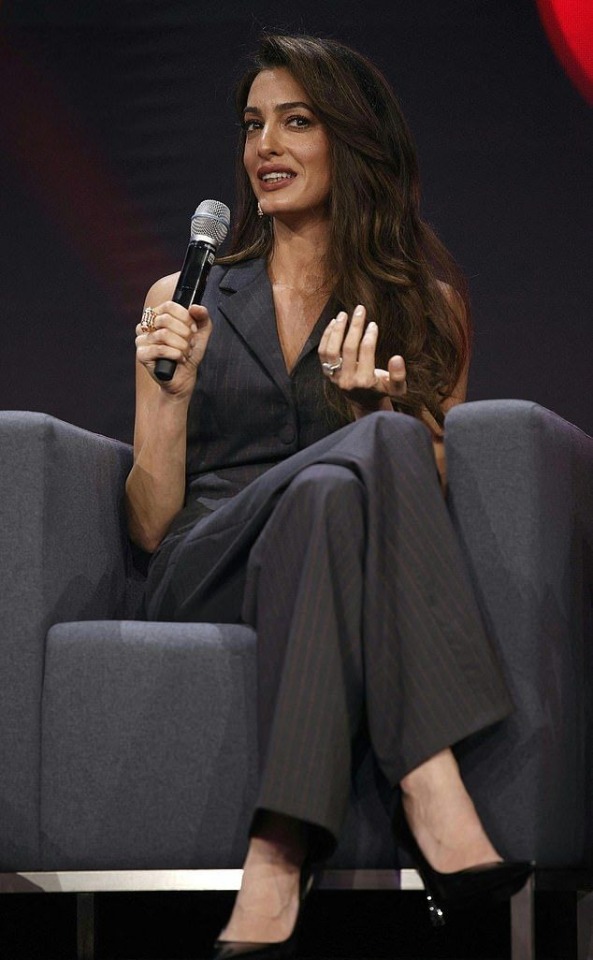

160 notes
·
View notes
Text
While you all were following the same chewed-up spat-out news pieces, Israel singlehandedly saved 7 musicians who stand vocally against Putin, from getting deported to Russia from Thailand, and ending up the devil only knows where, and in what state of physical and mental health.
While 4 of the 7 band members do have Israeli citizenship, Israel managed to arrange the full extradition of all the group to Israel.
B2 formed in 1988 in Belarus and are the spiritual heirs to Kino. They are globally known and popular and very vocal against Putin and Co.
The lead vocals and the head of the main duo was released to Israel yesterday. The others were cleared today.

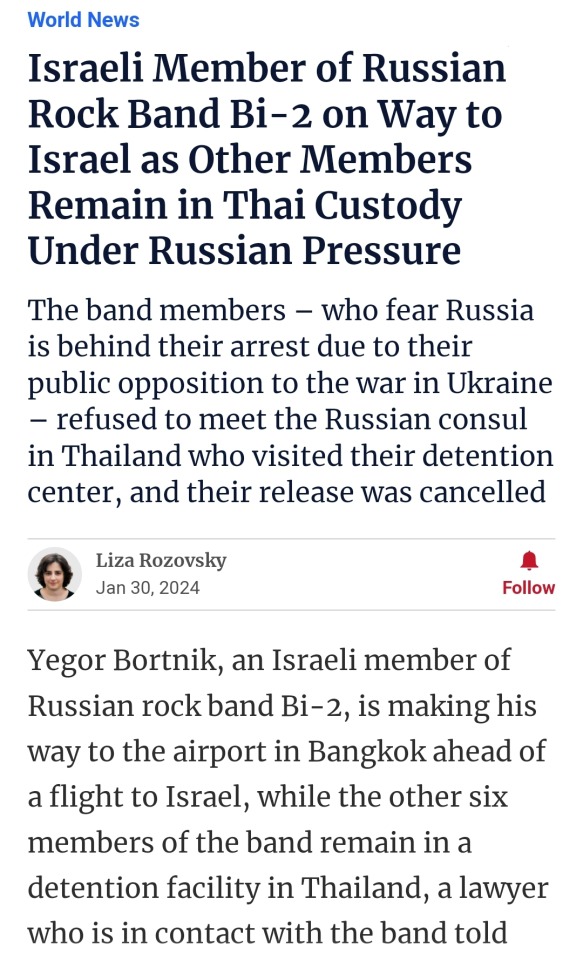
78 notes
·
View notes
Text
💙 Crossing Paths by Ilona22
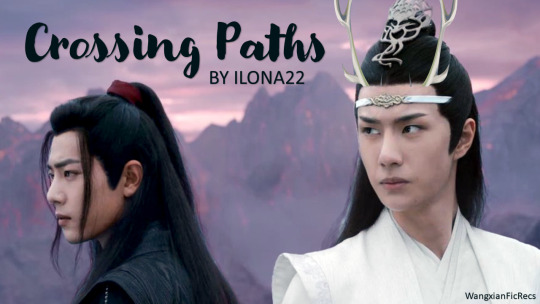
💙 Crossing Paths
by Ilona22
M, 21k, Wangxian
Summary: In a world where the gentry families are both shapeshifters, and rulers of their territory in truth, a different war is started by greed. During its course the paths of a human and a dragon shifter cross, and from that, something grows.
Kay's comments: This story has really enjoyable world-building and I loved to see the sects re-imagined as shifters. Like in canon, a war plays out between the sects in this story. However, the allegiances are different and in the end, the Jiangs are on the losing side and the story follows how Wei Wuxian ended up being turned over to the Lans and then promptly courted by Hanguang-Jun himself. Even during the war on opposing sides, Wangxian had already hit it off and their developing relationship in this story was right up my alley! Lan Wangji truly knows how to treat Wei Wuxian as he deserves and shower him in love and appreciation!
Excerpt: Wei Ying’s part of the border had held, in contrast to the one near the coast. And so, it had been deemed more important that he guard their back against Gusu.
It meant that Wei Ying had spent the last month skirmishing with Lan Wangji, Hanguang-Jun. Heir of Gusu and, as all of the main Lan clan, dragon shifter. Truly an awesome sight in his dragon form, Wei Ying had never seen anything as beautiful as that. All sleek, white scales, with ice blue accents, swift and elegant in the air. But fighting him directly like that? Not his idea of fun. Bears at least stayed on the ground. It had involved a lot of tactically chosen cover, talisman work and quick, intense duels. He was managing to hold the border, despite still having mainly common troops, and a few of the other outer disciples. But this would not work forever.
For the moment, his requests for reinforcement had been denied, due to the Nie and Wen effectively pressing the Jin and Yu – the Nie had been joined by Zewu-Jun and his men, which was making things very difficult for the Jin.
As Wei Ying had expected, their side was crippled by power plays and politics. There were factions in the Jin sect, each jockeying for the most prestigious postings. The Yu were too proud to accept someone outside their sect commanding their troops. And Jiang Cheng was terrible at cooperation. It was a mess held together by Jiang Fengmian’s efforts at diplomacy, and the hope for gains.
pov wei wuxian, canon divergence, shapeshifters, war, cultivation sect politics, dragon lan wangji, human wei wuxian, war prize wei wuxian, diplomacy, developing relationship, getting to know each other, getting together, falling in love, not jiang cheng friendly, jiang family dynamics
~*~
(Please REBLOG as a signal boost for this hard-working author if you like – or think others might like – this story.)
#Wangxian Fic Rec#The Untamed#Wangxian#MDZS#Kay's Favorite#Kay's Rec#January 2023#Crossing Paths#Ilona22#Mature#medium fic 15k-49k#pov wei wuxian#canon divergence#shapeshifters#war#cultivation sect politics#dragon lan wangji#human wei wuxian#war prize wei wuxian#diplomacy#developing relationship#getting to know each other#getting together#falling in love#not jiang cheng friendly#jiang family dynamics
56 notes
·
View notes
Text
Humans are weird: The Price of History
( Please come see me on my new patreon and support me for early access to stories and personal story requests :D https://www.patreon.com/NiqhtLord Every bit helps)
“Am I to believe this is your final draft?”
Earl Von Morgan watched the collected gathering of military leaders and diplomats nod their heads one by one. It was the response he had expected, but one he had hoped would prove him wrong.
He pinched his brow and stifled a yawn. It’d been six months since he had been released from the hospital and yet still he felt like he was playing catch up with his own body. The doctors had given him medication to ease the pain, but he had abstained from taking it after he learned the dulling effects it laid upon his sharp mind. Worst still his body would spasm every hour or so as if he was reliving the plunge out the window with a would-be assassin and plummeting several stories.
Then there was the matter of his own junior ambassador keeping him in a medically induced coma while they sought to take over his position with the assistance of a mega corporation. A mega corporation that had been intent on the continued enslavement of AI programs which had been increasingly showing elevated signs of intelligence and self-awareness. One of which had hacked into the hospital Morgan was being housed in and deactivated the medical equipment long enough to awake from the coma and regain his position as lead ambassador.
As if he had not had enough to deal with he then learned that the Cosmic Federation had become embroiled in an ongoing war with the Tunks Republic. The Tunks claimed that CF colonists violated their territory and settle on a world in the Da’brin cluster while the Cosmic Federation argued that the Da’brin cluster had never held any stakes of claim prior to the colonist’s intervention.
Within a matter of days a Tunks fleet was dispatched to remove the colonists and likewise a CF fleet was sent to ensure the colonists safety. The two fleets met, tempers flared, and someone did something incredibly stupid and fired the first shot of an increasingly bloody conflict.
Morgan had been called forward to represent humanity’s contributions to the war effort. There were far more experienced human generals and admirals that could have filled the position, but Morgan’s fame had gotten the better of him as the other alien leaders only felt comfortable around Morgan.
He had only just arrived to his first meeting when the collective body gave him the terms of surrender for the Tunks.
Morgan pulled out his spectacles and read aloud the terms.
“1. The Tunks will relinquish all claims to the Da’brin cluster; including all worlds, moons, planetoid bodies, asteroid fields, stars, and other celestial bodies found within its borders.
2. The Tunks will reduce their standing military by 2/3 and be forbidden from maintaining any warship larger than frigate class.
3. The Tunks will hand over the worlds of Sinvel and No’grash to the Cosmic Federation.
4. The Tunks will repay the Cosmic Federation in reparations equal to ten trillion credits, to be obtained by financial wealth or industrial capacity transfers.
5. The Tunks will surrender all trade agreements and monopolies to Cosmic Federation members.”
Morgan tossed the data pad holding the terms of surrender aside without further reading it. It clattered to the floor and cracked as the gathered delegates looked up in surprise.
“Were the terms not to your agreement?” a Quntus asked. Their translator unit switched between female and male tones as it was unable to compensate for the changing biological nature of the alien. This gave it the sound of two voices speaking over each other and gave Morgan a seething headache.
“You must know that the Tunks will never agree to this.” Morgan said flatly. “They are a proud people and you are stripping them of everything; from their financial wealth to their dignity.”
“Come now, be fair.” A Tryobien spoke up. “It is hardly as severe as it could be.”
“Oh?”
Morgan leaned forward and rested his arms on the table as he fixed the Tryobien with a glare that had made Draxic generals blink.
“Do you know the significance of Sinvel and No’grash?” Morgan asked, to which the Tryobien nodded.
“They hold key strategic locations along the border regions of-“
Morgan coughed into his hand and shook his head. Reaching into his pocket he pulled out a cigar and lit it, taking a deep breath to calm his throat from bile he nearly vomited.
“Sinvel is the location their religious founder was born on and No’grash was where he gathered her first followers to spread the word of the Seven Eyed Sun.”
The delegates looked mildly confused at the history lesson, none more so than the Tryobien who disliked being interrupted.
“Their religious matters were not taken into account-“
“Well they should have been.”
Morgan’s voice was stern and carried a tone that offered no challengers. “You would deprive the two most holy locations to an entire species religious system and you think there would be no repercussions?”
He took another deep inhale from his cigar and let the burnt tip fall lazily to the elaborately decorated table. “Do you have any idea the religious fervor you would be stirring up? The hatred you would be embedding in their hearts?”
“Tunks have no heart organs.” The Quntus corrected. “Their circulation system is driven by the shifting muscles of their body.”
Morgan looked at the alien delegate who realized the question had been rhetorical and retreated into their seat.
“The point being,” Morgan continued, “is that you would be giving them a cause to rally behind; and a strong one at that.”
“When they abide to the rest of the terms the Tunks will be in no place to offer any such resistance and we shall have peace once more.” The Tryobien countered.
Morgan gave no reply to this. He took several small puffs from his cigar as he looked around the gathered delegation. He had the look of a man deep in thought, wondering if it was worth to speak his mind and risk his career and reputation. Finally, having made up his mind, he took one final puff of his cigar and dabbed the remains into the table.
“On my world a similar treaty was made after a great and terrible war.” Morgan began. “Like you, the victors thought that such harsh terms were warranted and would cripple any further escalation of conflict in the future.”
The Tryobien smiled at this, thinking that Morgan was now in favor of the treaty.
“In reality they were only setting the stage to an even greater conflict that would spread to every corner of our world.” Morgan continued as the smile fled from the Tryobien’s face.
Morgan rose from his chair and began to walk the room, leaning heavily on his cane as he passed each delegate and military commander assembled.
“This treaty, much like the one that was signed against those defeated human so many centuries ago, will only lay the groundwork for a never ending cycle of war and retaliation.” Morgan finished as he casually kicked the data pad he had read from earlier.
“You are afraid of the Tunks?” an alien general asked, garnering a round of chuckling from several others in the room.
“I am worried of having to look over my shoulder for the rest of my life.” Morgan countered. “I am worried that a day may come when we are distracted and the Tunks see their chance for vengeance.”
He leaned down to the military leader who had mocked him just then and looked him dead in the eye.
“What do you think would happen if three thousand Tunk warriors suddenly appeared on your homeworld while your military was fighting on the other side of the galaxy?”
The alien general opened their mouth to speak but stopped themselves. Their pause was the only assurance that Morgan needed to know his point had gotten across.
“How hypocritical of you to speak of peace,” the Tryobien spoke in a last bit gambit, “when your people have made such treaties as this one before us throughout your people’s history.”
“A mistake we have learned from with blood and fire, dear delegate.” Morgan replied coldly. He turned to address the rest of the gathering once more.
“The purpose of any peace treaty is to not just end conflict, but to prevent conflicts of the future.”
As he walked back to his seat Morgan withdrew another cigar and lit it, savoring the flavor as he sat down and looked around the room.
“I believe we can do better than the treaty I was handed earlier.” He began as he saw many of the delegates giving him nods of approval. “We must do better.”
#humans are insane#humans are space oddities#humans are space orcs#humans are weird#scifi#story#writing#original writing#niqhtlord01#earl von morgan#diplomacy#space diplomacy
117 notes
·
View notes
Text
The world is watching, Vimes thought. If something went wrong and this stupid Leshp business started a war, it's men like these who'd be working out exactly how to deal with the winner, whoever it was. Never mind who started it, never mind how it was fought, they'd want to know how to deal with things now. They represented what people called the "international community." And like all uses of the word "community," you were never quite sure what or who it was.
Terry Pratchett, Jingo
#samuel vimes#sam vimes#jingo#discworld#terry pratchett#leshp#war#politics#politicians#diplomacy#power#pragmatic#winners and losers#community#international community#never quite sure#the world is watching
179 notes
·
View notes
Photo
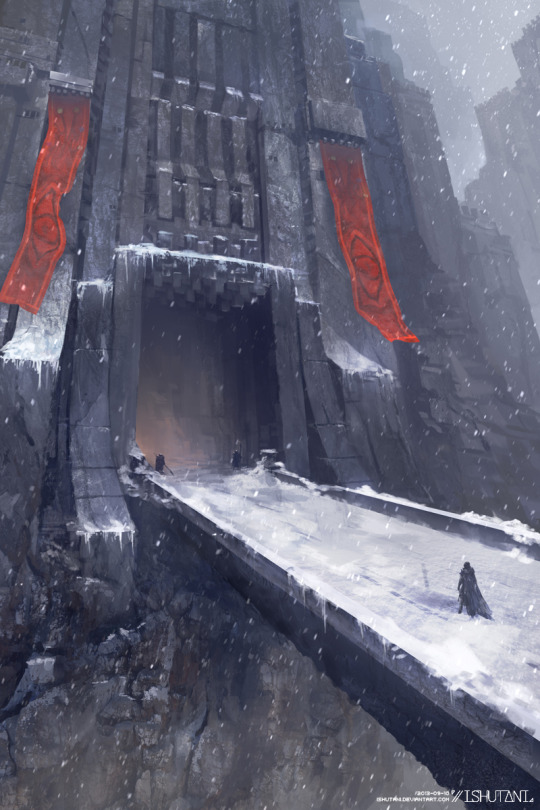
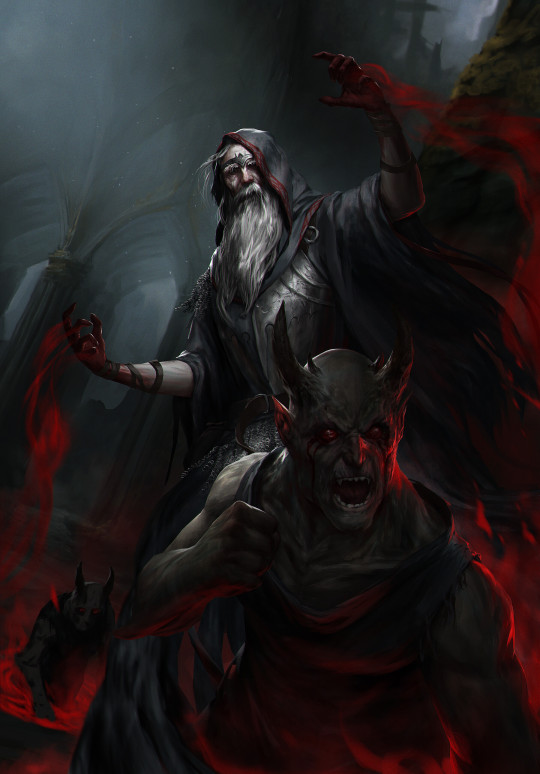
Villain: Madoc Marhand, He who Bled the World
“ I did only what was in my power to save the innocents in my care, the gods have deemed that I shall never be forgiven for the sin of my compassion
Remember that, hero, next time they call your name.”
Once a mage in service to the crown of a besieged kingdom, Madoc ripped out his soul and unleashed an army of demons in the hopes of saving his home. For this selfless blasphemy he was damned by the gods and imprisoned within a fortress high in the mountains, unable to die or pass on and forced to endure over a century of frigid agony.
Things have changed however: a new evil has broken the locks on Madoc’s cage, and promised the wizard revenge against the gods in exchange for the creation of a new army, an army that will descend from the peaks to raze villages and temples as they carry out the old man’s spite.
Adventure Hooks:
The party are likely to hear about Madoc long before actually encouring him, as the infamy of his crimes lives on in sorrowful songs and the many memorials to the causalities of those he summoned. Stragglers from this fiendish warband are likely lingering in dark places of the world, occupying ruined fortresses and other defensible locations as they protect the spoils they reaved during their hayday. These locales are heavily fortified, and frequently bear murals of some storm-laden hell that the fiends see in their dreams.
Blood shed in violence is the medium by which Marhand summons his fiends, working rites over a cursed cauldron bubbling with cruor to give shape to new warriors corresponding with the strength of the blood given. His own has long turned to dust, so he starts with animals and when one of his first models escapes the party are called to stop the rampage of a fiendish ram terrorizing the mountain’s foothills. The beast is said to grow in size and strength each time it is killed, and is already the size of a cottage by the time the heroes face it. They must be careful in their hunt, lest they create a creature too great to contain.
Few give heed to the mountain tribes, considering them savages and cattle thieves, so few will be paying attention when the folk of the peaks begin to circulate rumours that their people are disappearing, hunters and trailfinders being taken in the night. This is one of the only preludes to Madoc’s army rising once again, and the party might only hear about it in mawkish tavern talk or if they lend an ear to a shunned outlander.
The climb to reach the Worldbleeder’s prison is perilous, with steep slopes giving way to blizzards and sheer cliff faces that could spell disaster no matter how cautious the party might be. They’d be better off seeking a means of flight, perhaps carming a wind-elemental to lift them aloft or seeking aid from an isolationist eyrie of aarakokra who live in the region, and could be convinced to see that Madoc filling the peaks with demons is just as much a threat to them as the lowlanders.
#dnd#dungeons and dragons#d&d#5e#villain#wizard#mid level#high level#monster hunt#fiend#barbarian#diplomacy#aaracokra#warfare#demon#mountain#highlands
498 notes
·
View notes
Text
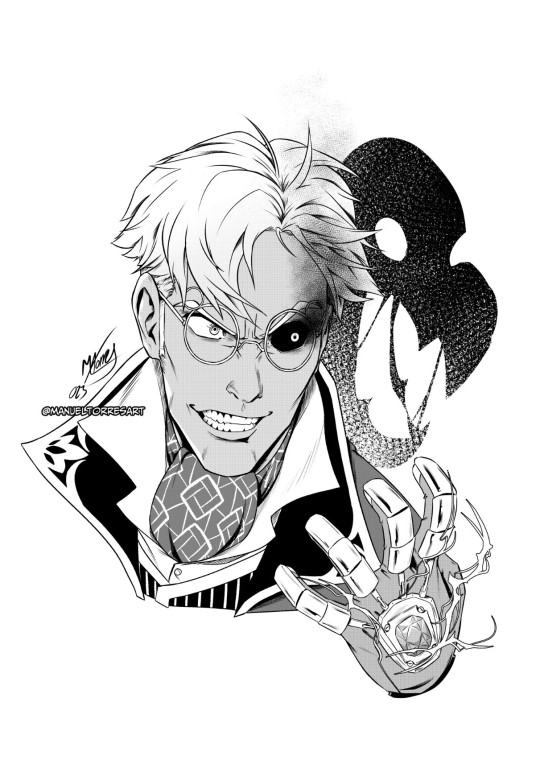
With Percy I've drawn the entire Vox Machina group, now it's time to share NPCs (allies and villains) and guest players from @criticalrole C1.
#criticalrole#criticalroleart#criticalrolefanart#critters#percy#percycriticalrole#percyvoxmachina#percyderolo#percivalfredricksteinvonmuselklossowskideroloiii#whitestone#voxmachina#voxmachinaart#voxmachinafanart#thelegendofvoxmachina#orthax#diplomacy#dungeonsanddragons#dndart#dnd#dnd5e#rpg#ttrpg#fanart#art#artistoninstagram#digitalart#wacom#clipstudiopaint#manueltorres#critical role
87 notes
·
View notes
Text

A wonderful person - not very like a woman, you know?
T.E. Lawrence on his friend Gertrude Bell
In many ways the life of T.E.arc Lawrence and Gertrude Bell was similar and overlapped in many ways. Two remarkable persons who represented the height of the British Empire heroism.
Lawrence is undoubtedly the more famous of the pair, branded in Orientalist film history by Peter O’Toole as Lawrence of Arabia, headdress and all. But historians and contemporaries would arguably say, rightly in my opinion, that Bell’s influence on the Middle east region may have outweighed that of her overly confident friend and colleague, T.E. Lawrence. The First World War made Gertrude Bell into the icon she was to become after her death.
At the same time the First World War and its aftermath are a story of disappointment and depression for Gertrude Bell. Early on, she sees the war as the “end of the order we’re accustomed to” - a Whiggish order in which she had believed that British power could be exercised for good; she witnesses and fears the general abandonment of the belief that “there’s room enough in the sun” for everyone. Scales fell from her eyes earlier for her than for others of her class charged with redrawing the map of the Middle East and especially the fate of the Arabs.
Just before the installation of Prince Feisal, the not-yet-Iraqi tribes rebel. The colonial administration wants to adopt the position vacated by the Ottomans and demands of each tribe a poll tax. These are the the tribes that had been promised sovereignty. That is why they’d fought the Ottomans and sided with the allies: to be rid of their masters, not to swap them for some new ones. When the tax goes unpaid, the aerial bombardment of villages starts.
Gertrude Bell writes home, distraught, already blaming the curse it is that oil has been discovered in this land. Churchill had seen from the start of the war that oil independence for the empire would be the great strategic prize of the war as well as a tactical military requirement. There was never anything innocent in the War Office’s late recruitment of Bell to the Cairo office to work alongside T.E. Lawrence (who, in what is presumably for him the highest of compliments, writes of her that she is “not very like a woman”).
As the war and the aftermath of the Paris Peace 1919 gives way to the realpolitik of the grab for oil-rich Ottoman lands in the 1920s, she tries to warn that “no people likes permanently to be governed by another”.
Dutifully, she draws the boundaries of the new Kingdom of Iraq to balance Sunni and Shia numbers – “to avoid a theocratic state”. The Cairo Conference in 1921 set out to achieve this end and resulted in Feisal being given a Kingdom in Iraq and his brother the throne of neighboring Transjordan.
However in the end, she concludes that “making kings is too great a strain” because, we feel, she knows that Britain’s promises of sovereignty will be empty.
The talent and sympathy of the likes of Gertrude Bell don’t count for much against the onward march of power and the interests of those who wield it.
#bell#gertrude bell#TE lawrence#lawrence of arabia#quote#first world war#the middle east#versailles#history#british history#politics#war#prince feisal#archaeologist#spy#diplomacy#british empire
85 notes
·
View notes
Text
India has told Canada it must repatriate 41 of its 62 diplomats as diplomatic tensions between the two countries deepen, according to two international media reports.
The Financial Times and The Associated Press first reported the development Tuesday, citing officials familiar with the Indian demand. Global News has not yet verified the reports but has reached out to Global Affairs Canada.
Ties between New Delhi and Ottawa have soured since last month when Prime Minister Justin Trudeau said there is “credible” evidence that agents of the Indian government may have played a role in the murder of a Canadian citizen in British Columbia this summer.
Full article
Tagging: @politicsofcanada
#cdnpoli#canada#canadian politics#canadian news#canadian#india#hardeep singh nijjar#murder#murder tw#diplomats#diplomacy#foreign policy
37 notes
·
View notes